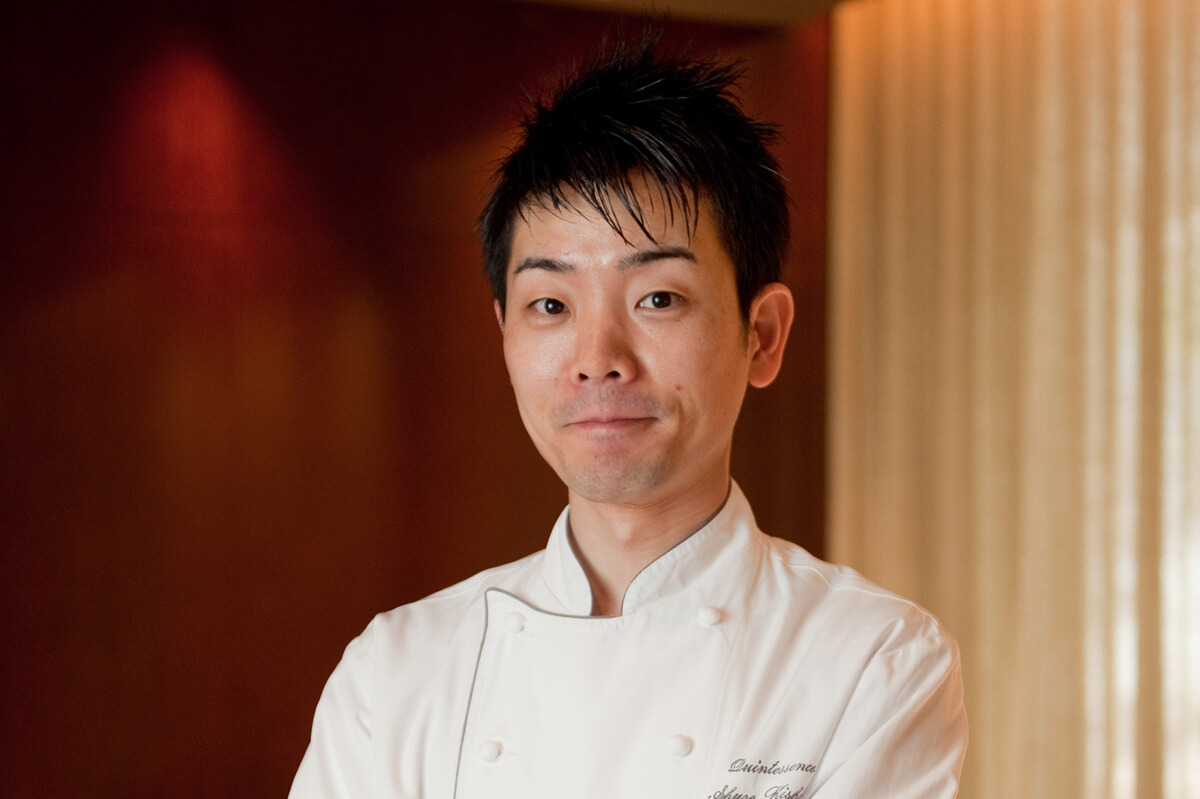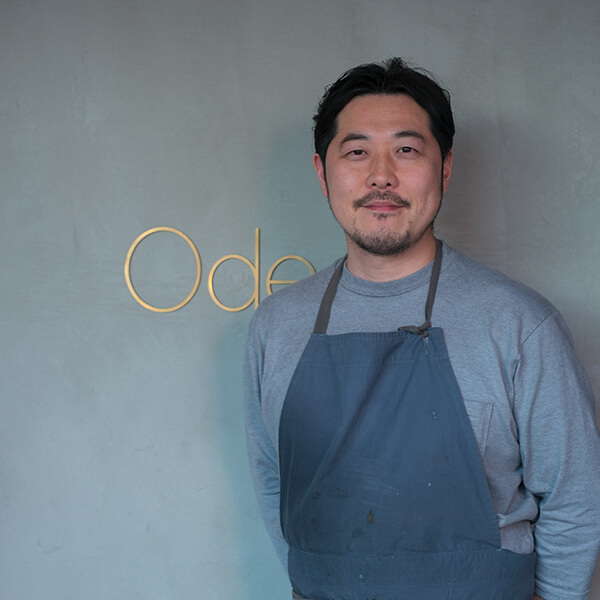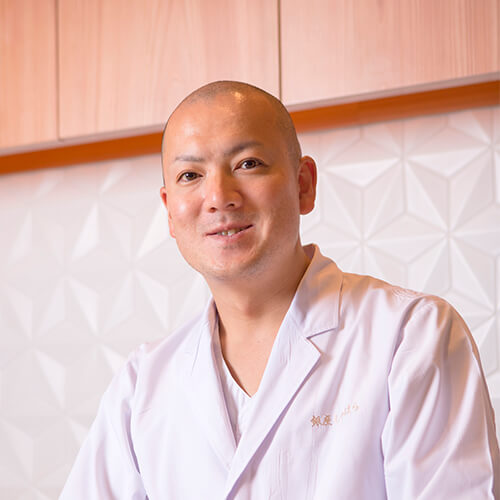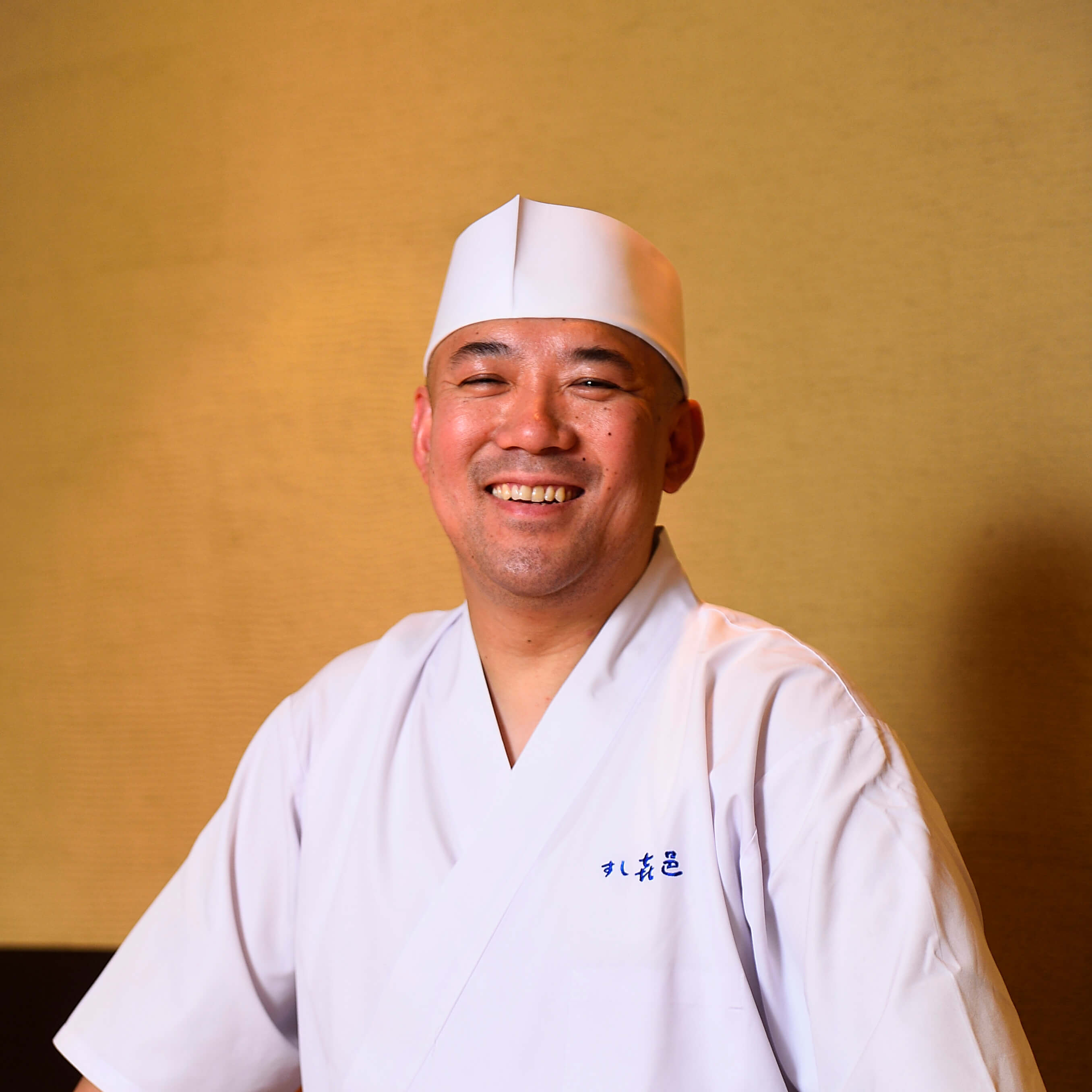The Origin of Kikunoi

―I believe ”Kikunoi” is an old household name, and your grandfather started the Kikunoi restaurant business, which makes you the third-generation chef of Kikunoi. But is it true that you are actually the 22nd generation?
I am the third-generation chef of Kikunoi as a restaurant. Historically, when the Northern government relocated from Osaka Castle to Kodaiji Temple, there was a “chabozu” (tea priest) who came along. That tea priest is the origin of my family and now I am the 22nd generation.
―What does a tea priest do?
It's like making tea or organizing “cha-kai” (tea ceremony). Also, Kikunoi is officially called "Kikusui Noi", and the word “Kikunoi” came from a well used to provide water for the Northern government people at that time, and my ancestors protected it.

Refusing to Follow His Father’s Footsteps and Starting Job Hunting in France
―Did you go into training right after graduating from university?
I hate to follow in other people’s footsteps, so I told my father, "I don’t want to follow your footsteps."
―Your father must be upset.
He told me "Because I don't rely on you, do whatever you like." When I told him that I wanted to be a French cook, he said "If you want to be a French cook, go to France." I was still in school, but because I took all my remaining credits (classes) in the first half of the school year, I went to France for job hunting in the second half of the school year.

―Is it true that in Paris, people are very into Japanese culture?
Yes, it’s true. Especially vessels (pottery) and books. Although they can't read Japanese books, somehow they see it as an art, and they seem to be very thrilled about pottery.
―How about Japanese cuisine? Are there growing interests in Japanese food?
They also like Japanese cuisine. There is this trend that educated people eat Japanese food.
―Top chefs around the world incorporate Japanese elements into their cooking. Do they also use ingredients like shoyu (soy sauce) and miso?
Shoyu, miso, kelp, even bonito, many people use it. But I still think we Japanese people are the best when it comes to using Japanese ingredients(laugh).
The shocking baby food sighting
One day at a park, I was sitting on a bench. Then a mother came to sit next to me while feeding her child some baby food. It turned out the baby food was a boiled lamb brain with salt. I was really surprised and wondered if I could become a great French chef, while people here have been eating such things since childhood. So, I decided to stop challenging myself to become the best French chef.
On another occasion, I was talking with another chef that I met while I was training in France. I realized that Japanese food might end up as a mere ethnic food from the far east. Because of this, I wanted to dedicate my life to getting Japanese? food to be recognized internationally, so I decided to return to Japan.
Japanese Cuisine in the Eyes of the World

―“Washoku” (Japanese food*), which has been registered as a UNESCO Intangible Cultural Heritage, has a broad meaning. What defines “Washoku” in your opinion?
It is rather difficult to define, although it does not necessarily mean Nihon-ryouri* or Kyo-ryouri*. Rather than the food itself, I think it refers more to preserving cultural heritage. For example, a grandmother teaches a recipe she learned to her grandchild. When Washoku was registered by UNESCO, this means we, as Japanese people, have promised to inherit our cultural heritage to the world. So, I think it is time to regain our own identity with the consciousness of inheriting our culture.
*Note: There are many words for “Japanese cuisine.” Washoku (和食) means Japanese food. Nihon-ryouri (日本料理) refers to dishes prepared with difficult techniques using carefully selected ingredients. Kyo-ryouri (京料理) means Kyoto regional cuisine which involves comprehensive skills deeply rooted in Kyoto traditional culture.
―So far, cuisines that have been registered as Intangible Cultural Heritage are French gastronomics, Mediterranean (Spain, Italy, Greece, Morocco), Mexican, and Turkish. How did Japanese cuisine earn its recognition?
Actually, in the beginning we were going to go with Funazushi (fermented sushi), but I thought “what does that exactly mean?” There was also a suggestion for Heshiko (pickled fish), but like Funazushi, both are regional cuisines and do not represent the whole country. A dish that represents the whole country, we thought, would be Miso soup. I said the registration as a cultural heritage is only a tool and not the final point. The most important thing is what happens in the future. In the end, we decided to register “Washoku.”
―As we know Japanese cuisine is prepared differently according to the season. Is it difficult to explain this concept to people overseas?
There is no country with four seasons that does not grasp the concept of reflecting the feeling of seasons into food. Older people often say that French food doesn't have any sense of season, but in autumn they cook grilled deer, and with it comes currant jam and chestnut puree. When they look at the sauce used for the grilled deer, they would describe it as if they are “walking in the autumn forest.”
The Future of Japanese Food

―I think you mentioned in one of your books that you have this idea of "cooking for the public interest." Can you tell me about this?
One of the reasons I wanted to come to Tokyo is because Japanese food is too expensive. I don't want to waste my life making a dish that only certain people can eat. I have to set an affordable price so normal people with an average job can come to simply enjoy their meals.
―There are now many people in the world, especially young people, who create innovative, non-genre cuisines. Do you think this is a good thing?
I think it is a good thing. Now the number of Japanese restaurants around the world is remarkable. There are about 90.000 Japanese restaurants outside Japan, and approximately 99.8% of them do not have any Japanese staff or chefs employed.
―Did you mean almost all of those restaurants are not run by a Japanese?
Everyone says, "that's not Japanese food," but I think we should be grateful that they are cooking Japanese food. Japanese food has become, so to speak, a sapling. Until the trunk grows thick to be a large tree, many unnecessary branches and leaves will appear. Now, it is more important to “water this sapling”ーto give knowledge and guide these restaurateurs.
A Message to Young Generation of Chefs

―Any message to aspiring chefs?
There are very few jobs that give other people happiness, but among them, cooking is a good profession. Only people in trouble would get a lawyer, and only sick people would consult a doctor. But people who go to a restaurant are usually happy people, and as a chef, we can make them return home happier. However, being a chef requires a lot of physical strength and energy. So, I want you to be a chef with an open mind to learn various things and become a knowledgeable chef.

Kikunoi Main Restaurant
菊乃井本店
Address : 459 Shimokawara-cho, Yasakatoriimae-sagaru, Shimokawara-dori, Higashiyama-ku, Kyoto-shi, Kyoto
Open :Lunch 12:00 pm - (last order 1:00 pm) Dinner 5:00 pm - (last order 8:00 pm), ...
Previous Interviews
-

Yoji Tokuyoshi / Alter Ego
Ristorante Tokuyoshi and Its Alter Ego
Italian
Aug-31-2020
-

Yoshihiro Murata / Kikunoi
Kikunoi: Passing on Washoku as the Japanese Heritage to the World
Japanese
Aug-13-2020
-

Toshikatsu Aoki / Sushi Aoki
Sushi Aoki: Carrying on the Legacy of the Late Sushi Master
Sushi
July-2-2020
-

Toru Okuda/Ginza Kojyu
Ginza Kojyu: Finding Ways Through Adversity
Kaiseki
May-28-2020
-

Shuzo Kishida/Quintessence
Quintessence: The Top French Restaurant in Tokyo
French
Apr-30-2020
-

Takayoshi Watanabe/Teruzushi
Sushi Master Watanabe’s Quest for Uniqueness
Sushi
Apr-30-2020
-

Seizo Mitani/ Narikura
Endeavor to Discover the Perfect Tonkatsu
Tonkatsu
Feb-27-2020
-

Tomoya Kawada/Sazenka
Innovating Chinese Cuisine with the Japanese Spirit
Chinese
Jan-30-2020
-

Luca Fantin/Bvlgari Il Ristorante - Luca Fantin
The Culinary Journey from Italy to Japan
Italian
Dec-26-2019
-

Yusuke Namai/Ode
Virtuoso of Unique Dining Experience in Tokyo, Yusuke Namai
French
Nov-28-2019
-

Noriyuki Hamada/Hoshi No Ya Tokyo Dining
Award-Winning Chef Hamada Illustrating
French
Nov-07-2019
-

Takemasa Shinohara/Ginza Shinohara
A Kaiseki Artist Portraying Scenery of Hometown Shiga
Kaiseki
Oct-01-2019
-

Koji Kimura/Sushi Kimura
The Father of Aged Sushi
Sushi
Oct-01-2019
- SAVOR JAPAN
- Special Features
- Life in the Kitchen
- Kikunoi: Passing on Washoku as the Japanese Heritage to the World
